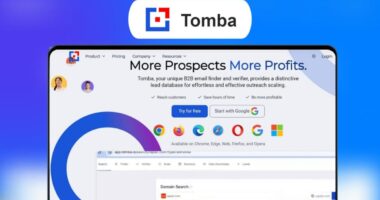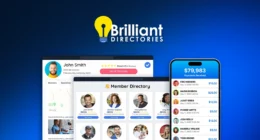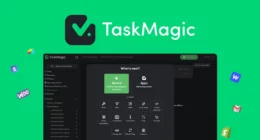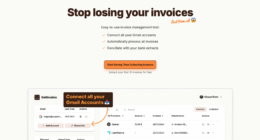Microsoft Dynamics 365 Business Central offers small businesses a thorough cloud-based accounting solution that integrates seamlessly with familiar Microsoft tools like Excel and Outlook. The software provides automated invoicing, payroll management, and financial reporting through flexible subscription plans. Its user-friendly interface allows business owners to manage finances remotely while automating routine tasks. Companies can start with basic features and expand their capabilities as their operations grow. The platform’s extensive features help transform financial management into a strategic advantage.
Quick Overview
- Microsoft Dynamics 365 Business Central offers cloud-based accounting and financial management specifically designed for small to medium businesses.
- Three flexible licensing options (Premium, Essential, Team Members) allow businesses to select features that match their budget and needs.
- The software seamlessly integrates with familiar Microsoft tools like Excel, Outlook, and Teams for streamlined workflow efficiency.
- Built-in automation features handle routine tasks like invoicing and payroll, reducing manual work and improving accuracy.
- Cloud-based accessibility enables business owners to manage finances, view reports, and process transactions from anywhere at any time.
Understanding Microsoft’s Small Business Accounting Solutions

Microsoft’s small business accounting solutions stand at the forefront of modern financial management technology. At its core, Microsoft Dynamics 365 Business Central serves as an all-encompassing cloud-based ERP system tailored for small to medium-sized businesses.
The platform offers essential financial tools through three licensing options: Premium, Essential, and Team Members. Users can manage their general ledger, reconcile bank accounts, and handle multi-currency transactions all in one place. For businesses still using legacy systems, the software provides easy data migration from other accounting platforms like QuickBooks and Peachtree. The system’s integration with familiar Microsoft tools like Excel, Outlook, and Teams creates a seamless workflow for daily operations.
What sets these solutions apart is their adaptability. Businesses can personalize their accounting processes with add-ons like payroll while maintaining robust reporting capabilities. The platform’s cloud-based nature guarantees data accessibility across desktop and mobile devices.
Essential Features That Drive Business Growth
At the heart of successful business growth lies a robust set of features designed to streamline financial operations and boost productivity. Microsoft’s accounting software delivers essential tools that help businesses scale efficiently while maintaining accurate financial control. The software’s 24/7 accessibility ensures business owners can manage their finances from any location at any time.
- Automation capabilities streamline repetitive tasks like invoicing and payroll, reducing manual labor and increasing workplace efficiency.
- Built-in business intelligence tools provide detailed financial insights through customizable dashboards and KPI tracking.
- Cloud-based deployment enables seamless scaling across multiple locations, supporting additional users and transaction volumes without performance loss.
- Integration features connect financial data with inventory management, project tracking, and sales processes, creating a unified business ecosystem.
These core features work together to support sustainable growth while maintaining security and compliance standards, making Microsoft’s accounting software a valuable asset for expanding businesses.
Cost-Effective Options for Growing Companies

Building upon the powerful features that drive business growth, cost-effective accounting solutions stand ready to support companies at every stage of development. Microsoft’s accounting software offers flexible pricing tiers that align with business needs, starting from basic plans at $0-$50 monthly to thorough solutions at $50-$150 monthly.
Small businesses can begin with essential features like expense tracking and invoicing, then seamlessly upgrade as they expand. Like approximately 70% of small businesses today, many companies can operate effectively without external bookkeeping staff by utilizing these software solutions. The subscription-based model eliminates large upfront costs while providing regular updates and technical support. Popular alternatives like QuickBooks Online offer similar flexibility for growing businesses.
Key cost-saving benefits include:
- Automated task management reducing labor expenses
- Cloud-based collaboration without expensive IT infrastructure
- Built-in tax tools minimizing accountant fees
- Integration capabilities preventing duplicate software costs
- Modular solutions that scale with company growth
These options guarantee businesses only pay for features they need while maintaining flexibility for future expansion.
Seamless Integration With Microsoft Ecosystem
Seamless connectivity forms the backbone of modern accounting software, particularly within the all-encompassing Microsoft ecosystem. The integration between Microsoft’s accounting solutions and its broader suite of business tools creates a powerful environment for financial management and collaboration.
- Microsoft 365 tools like Word and Excel work directly with accounting software, allowing teams to create financial reports and documents using familiar templates.
- Real-time data sharing through the Common Data Model guarantees that all departments work with consistent, up-to-date financial information.
- Microsoft Teams integration enables quick approvals and streamlined communication for accounting tasks. Sage Network automation enhances efficiency by eliminating manual data entry and accelerating financial processes across business entities.
- Built-in connectors with Dynamics 365 Finance automate essential processes like tax calculations, compliance reporting, and payment processing.
This unified approach helps businesses maintain efficiency while reducing the complexity of managing multiple disconnected systems.
Making the Switch: Implementation and Support

Shifting to new accounting software demands meticulous planning and structured execution to guarantee a seamless implementation process. The shift entails several pivotal phases, commencing with thorough implementation planning and data migration.
Organizations should begin by examining their current processes and devising a detailed project plan. Establishing a clear change control process helps organizations systematically evaluate and implement necessary modifications during the transition. Data migration follows, utilizing specialized tools like the Data Migration Framework to verify precise transfer of financial records.
Extensive training programs assist users in adapting to the new system through hands-on workshops and ongoing support resources. Change management plays a vital role, necessitating transparent communication and stakeholder involvement throughout the shift.
After implementation, dedicated support teams maintain system performance while monitoring user adoption. Regular updates and performance reviews safeguard that the software continues to align with evolving business needs, maximizing return on investment.
Frequently Asked Questions
Can Microsoft Accounting Software Handle Cryptocurrency Transactions and Blockchain Integration?
Microsoft’s accounting software effectively handles cryptocurrency transactions and blockchain integration through Dynamics 365 Business Central. The system supports direct cryptocurrency payments, connects with crypto wallets, and enables blockchain-verified transactions. Users can manage multiple cryptocurrencies, issue crypto invoices, and automate fund reconciliation.
The software includes built-in security features for crypto asset management and guarantees compliance with digital currency regulations through reliable tracking and monitoring capabilities.
What Happens to My Financial Data if Microsoft Discontinues the Software?
While software discontinuation can be concerning, Microsoft provides clear data retention policies to protect financial records. Users typically have a 90-day window to export their data after discontinuation notices.
The company recommends:
- Exporting data to universal formats (CSV, XML)
- Creating independent backups
- Shifting to supported alternatives like Business Central
To maintain business continuity, organizations should regularly monitor software lifecycle announcements and plan migrations well before end-of-life dates.
How Does Microsoft’s Accounting Software Compare to Quickbooks for Tax Preparation?
Microsoft Dynamics 365 Business Central and QuickBooks vary substantially in their tax preparation capabilities. While QuickBooks offers simpler, U.S.-focused tax features and integrates well with TurboTax, Dynamics provides more thorough global tax management.
QuickBooks is better suited for small businesses with basic tax needs, starting at $25/month. Dynamics, though pricier at $70/month, offers advanced features like multi-currency support, custom tax settings per jurisdiction, and robust audit trails.
Are There Industry-Specific Templates for Healthcare or Construction Businesses?
While some might expect generic, one-size-fits-all solutions, Microsoft actually offers robust industry-specific templates for both healthcare and construction businesses.
Healthcare templates focus on patient billing, appointments, and insurance claims tracking, while construction templates emphasize project management and material costs. Both industries benefit from customizable Microsoft Dynamics 365 and Access templates that handle specialized needs like inventory management, payroll processing, and regulatory compliance tracking.
Can Multiple Users Work Simultaneously on Different Devices in Different Time Zones?
Yes, multiple users can work simultaneously on different devices across time zones. Modern cloud-based accounting systems handle time zone differences automatically through server-side coordination.
Users can access and update financial data in real-time, with changes syncing instantly across all devices. Built-in conflict resolution features prevent data inconsistencies, while proper security protocols safeguard safe collaboration.
Offline capabilities allow work to continue without internet connectivity, syncing changes once reconnected.
Conclusion
While some business owners may hesitate to adopt new accounting software due to perceived complexity, Microsoft’s small business solutions offer an accessible entry point with room to scale. The combination of user-friendly interfaces, extensive features, and seamless Microsoft ecosystem integration makes these tools a practical choice for growing companies. With proper implementation and ongoing support, businesses can transform their financial management while maintaining operational efficiency.








